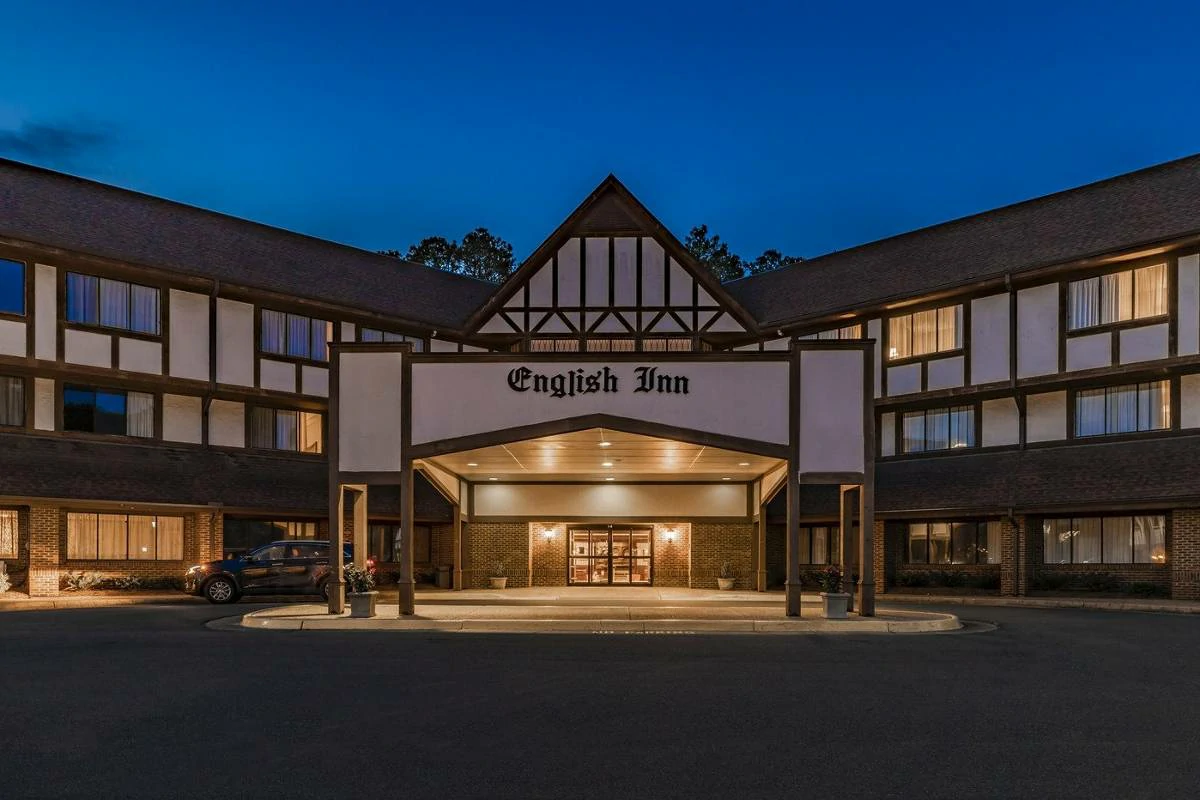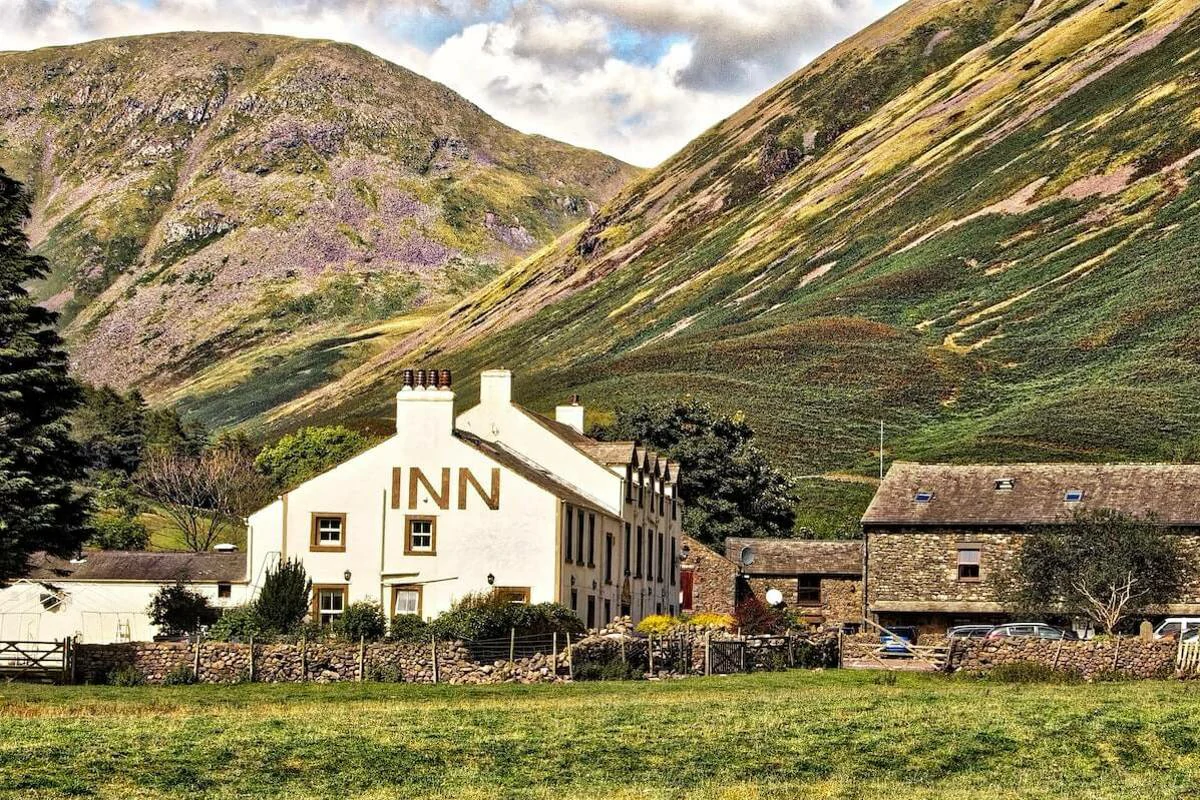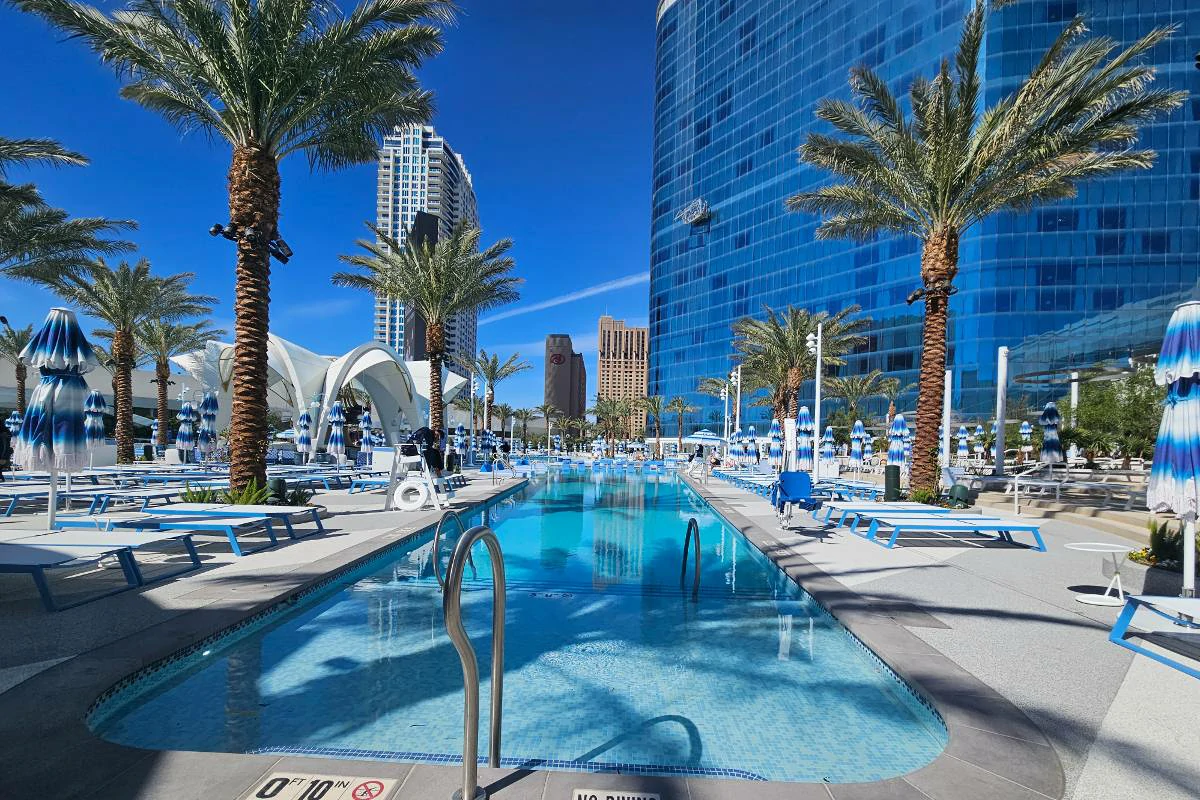What’s the Difference Between a Hotel and an Inn? Answer is – Hotels and inns both provide lodging, but there are distinctions in size, amenities, location, and atmosphere. Hotels typically are larger establishments with a wide range of amenities like restaurants, pools, fitness centers, and conference spaces. They often cater to business travelers and vacationers seeking convenience and numerous services. Inns tend to be smaller, family-owned properties located in quaint or historic settings. They offer a more intimate and personalized experience, sometimes with home-cooked meals and a focus on local charm.
Summary
- Size: Hotels tend to have more rooms and floors than inns.
- Amenities: Hotels offer a wider variety of amenities while inns provide more basic comforts.
- Location: Hotels frequently exist in urban areas or near major attractions while inns are often found in smaller towns or rural settings.
- Atmosphere: Hotels provide a more standardized experience, while inns offer a unique and homey atmosphere.
- Cost: Hotels can be more expensive than inns, reflecting their broader range of services.
What’s the Difference Between a Hotel and an Inn

When planning a trip, selecting the right accommodation is crucial for a comfortable and enjoyable experience. Two of the most common options are hotels and inns. Though both provide lodging, they offer distinctly different atmospheres, amenities, and overall vibes.
Hotels: The Familiar Choice
Hotels are establishments that most of us picture when we think of temporary lodging. They come in all shapes and sizes, from budget-friendly chains to opulent, five-star resorts.
Hotels are known for their standardization, providing a predictable experience wherever you might be in the world. This consistency can be reassuring, especially for business travelers or those focused on convenience.
You’ll find hotels in bustling city centers, near major airports, and alongside popular tourist destinations.
Inns: A Touch of Charm
Inns, on the other hand, offer a more intimate and often historic alternative. Picture cozy bed and breakfasts nestled in charming villages or quaint lodgings tucked away in scenic locations.
Unlike the standardization of hotels, inns pride themselves on their individuality.
They often have a strong connection to the local area, showcasing regional architecture, serving cuisine made with local ingredients, and offering insights into nearby attractions or hidden gems.
Why Understanding the Difference Matters
Choosing between a hotel and an inn goes beyond simply finding a place to sleep. The right accommodation can significantly impact your overall travel experience. Let’s consider a few scenarios:
The Business Traveler: A business traveler likely prioritizes convenience, reliable internet access, possible meeting spaces, and proximity to their work engagements. A hotel, with its amenities and central location, would likely be the preferred choice.
The Romantic Getaway: A couple seeking a romantic escape might find the personalized service, unique atmosphere, and potential for privacy offered by an inn far more appealing than a standardized hotel room.
The History Buff: If exploring a town’s historical roots is important, an inn housed in a converted historical building could transport you back in time, enriching your stay far beyond what a modern hotel can provide.
Sarah Peterson Expert Opinion
Sarah Peterson, a seasoned travel blogger and founder of The Globetrotting Granola, stresses the importance of matching accommodations to your travel style: “Think about what you value most during your travels. Do you crave predictable comforts and easy accessibility? Or are you drawn to local experiences and personalized touches? Your answers will help guide you towards the option that best suits your needs.”
What is a Hotel?

Hotels are commercial establishments designed to provide short-term lodging to travelers. They are the go-to choice for many due to their wide range of amenities, convenient locations, and varying levels of service. Let’s break down the key hallmarks of hotels:
Size: Hotels tend to be larger than inns. They frequently have multiple floors, hundreds of rooms, and can accommodate a significant number of guests at once.
Amenities: Hotels offer a plethora of on-site conveniences. These can include:
- Restaurants and Bars: Options range from casual cafes to fine-dining establishments.
- Fitness Centers: Gyms with cardio equipment, weights, and sometimes even classes.
- Pools and Spas: Areas for relaxation and rejuvenation.
- Business Centers: Equipped with computers, printers, and meeting spaces.
- Event and Conference Facilities: Large rooms for weddings, corporate gatherings, and the like.
Location: Hotels strategically position themselves to cater to different travelers:
- City Centers: Near business districts and popular attractions.
- Airports: For easy access before and after flights.
- Along Highways: For road trippers seeking a convenient stop.
- Tourist Destinations: Located close to beaches, ski resorts, or theme parks.
Types of Hotels
The world of hotels is vast and caters to diverse needs and budgets. Here are common categories:
Budget Hotels: These offer no-frills accommodations at affordable prices. Rooms are typically basic, and amenities are limited. Examples include well-known chains like Motel 6 or Super 8.
Mid-Range Hotels: A balance of comfort and affordability. They usually have a restaurant, a small gym, and possibly a pool. Think of brands like Hampton Inn or Holiday Inn Express.
Luxury Hotels: These emphasize high-end experiences. Rooms are spacious and lavish, amenities are top-notch, and service is impeccable. Consider iconic brands like The Ritz-Carlton or Four Seasons.
Business Hotels: Designed for the working traveler. They feature reliable Wi-Fi, desks in rooms, meeting spaces, and often proximity to business hubs. Marriott and Hilton are well-known in this sector.
Boutique Hotels: Stylish properties with smaller room counts and a focus on unique design and ambiance. The Kimpton Hotel brand exemplifies this category.
Resort Hotels: Offer self-contained vacation experiences. They boast multiple restaurants, pools, recreational activities, and may be located near beaches, golf courses, or ski areas.
James Martin Expert Opinion
James Martin, a hospitality consultant with over 20 years of experience, notes: “Hotels excel in providing a consistent and predictable stay. Their range of amenities and locations make them versatile for both leisure and business travelers.”
What is an Inn?

Inns have been a cornerstone of hospitality for centuries. Traditionally, they were roadside establishments offering travelers lodging, food, and respite. Today, inns retain that essence of warmth and welcome while evolving to suit modern tastes. Here’s what sets them apart:
Size: Inns are characteristically smaller than hotels. They tend to have a limited number of rooms, fostering a cozier and more intimate atmosphere. Think of them as a home away from home rather than a large, bustling complex.
Amenities: While inns usually offer the essentials for a comfortable stay, their focus is on simplicity and personalized service. Amenities might include:
- Home-Cooked Meals: Often prepared with local ingredients and a focus on regional flavors.
- Common Areas: Inviting living rooms or patios for socializing with other guests or relaxing.
- Local Recommendations: Innkeepers are often a treasure trove of knowledge about the surrounding area.
- Unique Activities: Some inns might offer curated experiences like history tours or local cooking classes.
Location: You’ll find inns tucked away in a variety of settings:
- Small Towns and Villages: Nestled amongst historic districts or quaint main streets.
- Rural Landscapes: Surrounded by rolling hills, vineyards, or coastal beauty.
- Off-the-Beaten-Path: Hidden gems far from the bustle of major tourist hubs.
The Appeal of the Inn Experience
Beyond the basics of lodging, inns provide experiences that resonate with travelers seeking something distinctive:
Intimacy and Personalization: Smaller size means more attentive service. Innkeepers often go the extra mile, remembering your preferences and offering tailored suggestions for exploring the area.
Local Flavor: Inns are deeply interwoven with their surroundings. The décor might reflect the region’s history, the menu might feature local specialties, and the innkeeper can share hidden gems that guidebooks won’t tell you about.
A Sense of Community: The communal areas of inns foster a sense of camaraderie amongst guests. You might strike up conversations with fellow travelers over a delicious breakfast or a board game by the fire.
Historical Charm: Many inns occupy converted buildings with rich pasts – former mansions, mills, or even stagecoach stops. Staying in such a place adds a unique layer of depth to your travels.
Slower Pace: Inns encourage a relaxed mindset. They are places to unwind, savor the surroundings, and escape the hustle of everyday life.
Emily Roberts Expert Opinion
Emily Roberts, owner of the award-winning Willow Creek Inn in the heart of New England, explains: “Inns offer an antidote to the cookie-cutter travel experience. Guests come here to connect with the place, the people, and perhaps even a slower version of themselves.”
Key Differences Between Hotels and Inns
| Feature | Hotels | Inns |
|---|---|---|
| Size & Capacity | Larger, multiple floors, hundreds of rooms | Smaller, limited rooms, often single-story or a few floors |
| Amenities | Wide range: restaurants, pools, gyms, spas, etc. | Basic comforts, local focus, sometimes with meals |
| Location | Urban areas, tourist destinations, near highways | Rural areas, historic towns, scenic locations, off-the-beaten-path |
| Atmosphere | Standard, efficient, predictable | Intimate, unique, personalized, reflects local character |
| Price | Budget to luxury, reflects amenities and location | Often more affordable, especially for those prioritizing simpler services |
| Target Audience | Business travelers, families, groups, vacationers | Couples, solo adventurers, history buffs, those seeking a local experience |
| Staffing | Large, formal staff with various departments | Smaller team, sometimes family-run, innkeeper plays a central role |
| Services | Room service, concierge, event planning, valet | Local tours, recommendations, personalized itineraries, special touches |
| Food & Beverage | Often multiple restaurants, bars, cafes | Home-cooked meals, dining room, focus on local ingredients |
| Chain vs. Ind. | Many belong to large chains | Predominantly independently owned |

1. Size and Capacity
Hotels: Hotels are built for volume. They often have multiple floors, hundreds of rooms, and the capacity to accommodate large numbers of guests simultaneously. This can be great for convenience but can sometimes contribute to a less personalized feel.
Inns: Inns embrace a smaller scale. They might have just a handful of rooms or suites. This fosters a sense of intimacy and allows innkeepers to provide more attentive service to individual guests.
2. Amenities
Hotels: Hotels excel in offering a wide array of on-site amenities. Think restaurants, pools, gyms, spas, business centers, and even conference facilities. This makes them self-contained havens where you often don’t even need to leave the property to have a fulfilling stay.
Inns: Inns focus on essential comforts and personalized touches. You might find cozy common areas, delicious home-cooked meals, and thoughtful recommendations for local experiences. While they don’t offer the extensive facilities of hotels, they compensate with a focus on warmth and a connection to the local community.
3. Location
Hotels: Location is about accessibility for hotels. They are strategically located in urban centers, near airports and highways, and within easy reach of major tourist destinations. This prioritizes convenience for the traveler.
Inns: Inns often boast unique and sometimes secluded locations. You’ll find them nestled in charming villages, surrounded by picturesque countryside, or tucked away on quiet coastlines. They are destinations in themselves, inviting you to embrace the slower pace and natural beauty of their setting.
4. Atmosphere
Hotels: Hotels prioritize consistency and functionality. Their atmospheres tend to be standardized to ensure a predictable experience for guests no matter where in the world they might be staying. Think neutral color palettes, efficient layouts, and an overall ambiance tailored towards convenience.
Inns: Inns foster a distinct sense of place. Each inn often embodies the spirit of its location. Design elements may reflect local architecture or history, creating a cozy and welcoming environment. The atmosphere is often relaxed and personal, fostering a sense of connection between guests and the innkeepers.
5. Price
Hotels: Hotels span the price spectrum, catering to diverse budgets. Options range from no-frills roadside motels to opulent luxury resorts. The more amenities, larger rooms, upscale services, and prime locations a hotel offers, the higher the cost tends to be.
Inns: Inns often represent a more affordable lodging option. Their focus on quaint accommodations, personalized service (rather than numerous on-site facilities), and sometimes less central locations contribute to their budget-friendliness. However, some inns specializing in gourmet cuisine or offering exclusive experiences can fall into a higher price bracket.
6. Target Audience
Hotels: Hotels are versatile by design, appealing to a broad range of travelers such as:
- Business Travelers: Who require reliable accommodations, internet access, and proximity to business hubs or conference centers.
- Families and Vacationers: Seeking hotels with amenities like pools, restaurants, and activities to keep everyone entertained.
- Groups: Hotels with their larger capacity and meeting spaces are well-suited for weddings, reunions, or corporate retreats.
Inns: Inns resonate with travelers looking for something beyond the ordinary. They are particularly attractive to:
- Couples: Craving romantic escapes in intimate settings with personalized touches.
- Solo Travelers: Looking to immerse themselves in local culture and perhaps connect with like-minded travelers in an inn’s social spaces.
- History Buffs: Drawn to the charm and potential stories held within inns housed in historic buildings.
- Nature Enthusiasts: Seeking inns nestled in scenic landscapes for easy access to hiking trails, lakeside retreats, or mountain adventures.
Sarah Martin Expert Opinion
Sarah Martin, a travel blogger specializing in unique accommodations, emphasizes the importance of aligning your lodging choice with your travel goals: “Ask yourself, do you want a place that serves as a comfortable base for exploration, or do you want your accommodation to be an integral part of the experience itself? Hotels excel at the former, while inns shine in the latter.”
7. Staffing
Hotels: Hotels require a larger, structured staff to manage their scale and diverse services. You’ll find clearly defined roles like front desk agents, housekeeping, restaurant staff, maintenance, and possibly even activities directors. The interactions will often feel professional and efficient.
Inns: Inns often have a smaller, more intimate team. The innkeeper might be a jack-of-all-trades, greeting guests, preparing meals, and sharing local tips. In some cases, the inn may be family-operated, adding a personal touch to the experience.
8. Services
Hotels: Hotels cater to convenience with various on-site services. These might include:
- Room Service: For in-room dining options.
- Concierge: To assist with booking tours, restaurant reservations, and transportation.
- Event Planning: For those hosting weddings, business functions, or other gatherings.
- Valet Parking: Particularly in urban hotels.
- Bellhop Services: To assist with luggage.
Inns: Inns prioritize personalized attention and local expertise. Common services include:
- Local Recommendations: Innkeepers are a treasure trove of knowledge about their area.
- Activity Planning: Inns may offer curated experiences or partner with local guides for unique tours.
- Personalized Itineraries: Some innkeepers go above and beyond to help guests plan day trips that suit their interests.
- Special Touches: Welcome baskets, fresh flowers in your room, or turndown service with a homemade treat.
9. Food and Beverage
Hotels: Hotels provide a range of dining options. This could include:
- Multiple Restaurants: Offering different cuisines or styles of service (formal dining, casual cafes, etc.).
- Bars and Lounges: For socializing, drinks, and sometimes light meals.
- Room Service: Allowing guests to dine in the privacy of their rooms.
Inns: Inns take a more intimate approach to dining, often emphasizing local flavors.
- Home-Cooked Meals: Breakfast is a highlight at many inns, featuring homemade specialties and sometimes even ingredients sourced from the inn’s garden.
- Dining Rooms: May serve lunch or dinner with a focus on seasonal menus.
- Communal Dining: Some inns encourage interaction with long tables or family-style meals.
- Local Partnerships: Inns may not have an extensive restaurant but can recommend favorite nearby spots and even secure reservations for guests.
10. Chain vs. Independent
Hotels: Many well-known hotels belong to large, international chains (think Marriott, Hilton, Hyatt). Chain hotels ensure consistency and predictability, with standardized design elements and service protocols.
Inns: The vast majority of inns are independently owned and operated. This means each inn boasts its own unique personality, design, and ambiance. Staying at an independent inn supports local businesses and contributes to the diverse tapestry of lodging options.
Emily Thompson Expert Opinion
Emily Thompson, hospitality consultant and author of “The Art of Innkeeping”, asserts: “The choice between chain hotels and independent inns reflects a traveler’s values. Chains offer familiarity, while inns offer the opportunity to support small businesses and experience true local hospitality”.
When to Choose a Hotel

Hotels shine brightly when it comes to offering various amenities, convenience, and locations catering to a wide range of travelers. Here’s a breakdown of when their strengths make them the ideal choice:
1. Need for Various Amenities and Services
Families with Children: Hotels with pools, kid-friendly restaurants, and sometimes even game rooms or organized activities provide entertainment and options for the whole family.
Travelers Prioritizing Wellness: When maintaining your fitness routine is essential, hotels with well-equipped gyms and possibly spa facilities are a bonus.
Foodies with Diverse Tastes: Multiple on-site dining options give everyone something to enjoy without the need to venture out for every meal.
Seeking Self-Contained Experiences: Resort hotels in particular offer the potential for a complete vacation without ever leaving the property.
2. Conveniences like On-Site Dining and Fitness
Limited Time to Explore: When your itinerary is packed, having restaurants and cafés within your hotel saves valuable time and energy that would otherwise be spent commuting to external eateries.
Unexpected Changes in Plans: Whether it’s inclement weather or a sudden schedule change, having a gym accessible within your accommodation offers flexibility.
Travel Simplicity: Sometimes, you want the ease of dining on-site for breakfast or having room service available for a relaxing night in after a day of exploring.
3. Business Travel or Conferences
Focus on Work: Hotels offer reliable Wi-Fi, business centers with printing capabilities, and well-lit desks in rooms to create a productive workspace.
Meeting Spaces: Many hotels have dedicated conference rooms, ideal for hosting professional events, client meetings, or team retreats.
Central Location: Proximity to business districts and convention centers minimizes commute time, maximizing your efficiency.
4. Location in a Major City or Near Attractions
Urban Adventures: When exploring bustling cities, hotels conveniently located near public transportation hubs, museums, and popular landmarks offer easy access for sightseeing.
Proximity to Specific Events: If you’re attending a concert, sporting event, or festival, hotels within walking distance simplify logistics and save time.
Near Airports or Highways: For early morning flights or road trip stopovers, hotels located right off major routes offer unbeatable convenience.
James Harrison Expert Opinion
James Harrison, a seasoned travel consultant specializing in corporate travel, emphasizes: “For business travelers, hotels provide the necessary infrastructure to stay connected, productive, and have easy access to essential locations. It’s about maximizing efficiency.”
When to Choose an Inn

Inns excel at providing experiences that go beyond just a place to sleep. Consider choosing an inn when the following factors resonate with your travel desires:
1. Desire for a Cozy, Intimate Setting
Romantic Getaways: Inns create the perfect ambiance for couples. Think cozy fireplaces, rooms with character, and perhaps luxurious touches like private balconies or whirlpool tubs.
Solo Travelers Seeking Connection: Inns offer a sense of belonging. Whether it’s chatting with the innkeeper over a delicious breakfast or striking up conversations with fellow guests in a common area, they provide a welcoming space for solo travelers.
Small Group or Family Gatherings: Some inns cater to groups, offering multiple rooms or even the possibility of renting out the entire property for an intimate celebration or special retreat.
2. Interest in Local History and Culture
Immersion in a Destination: Inns often embody the spirit of the region they’re in. Their design, cuisine, and the innkeeper’s knowledge contribute to a richer sense of place than most standardized hotels.
Historically Minded Travelers: Staying in a converted manor house, a former stagecoach stop, or a building with a storied past adds a fascinating layer to your travels.
Supporting Local Businesses: Choosing an independent inn directly contributes to the local economy and keeps the hospitality landscape diverse.
3. Seeking a More Personalized Experience
Local Expertise at Your Fingertips: Innkeepers are a wealth of knowledge about the area. They’ll gladly share hidden gems, recommend authentic eateries, or suggest scenic hikes that aren’t in the guidebooks.
Tailored Itineraries: Some innkeepers go above and beyond to help guests craft itineraries that reflect their interests, leading to unique and memorable experiences.
Special Touches: Inns often delight with thoughtful touches like welcome goodies showcasing local treats, a curated selection of books in your room, or a handwritten note offering restaurant suggestions.
4. On a Budget
Affordability without Sacrificing Charm: Inns often offer excellent value for money. You might forgo a swimming pool or an extensive room service menu, but you’ll still find comfortable rooms, a welcoming atmosphere, and often delicious homemade meals.
Prioritizing the Essentials: When you want a clean, comfortable place to rest your head, and the main focus of your trip is exploring the destination, inns are a cost-effective option.
Location Flexibility: While hotels in prime city center locations often command premium prices, you can find charming inns tucked away in nearby villages or smaller towns for a fraction of the cost.
Emily Peterson Expert Opinion
Emily Peterson, a travel writer who specializes in uncovering unique lodging experiences, notes: “Inns have a certain magic. You’re not just a guest there; you become part of the fabric of the place, even if just for a few days. For me, that connection is priceless.”
Conclusion
Hotels and inns each offer a distinct flavor of hospitality. Hotels excel at predictable comforts, a wide array of amenities, and strategic locations within bustling cities and popular tourist hubs. They cater superbly to travelers who value convenience, efficiency, and a standard level of service.
Inns, on the other hand, provide a window into the soul of a destination. With their intimate settings, focus on local charm, and personalized attention, they’re ideal for those seeking a slower pace and connection to the area they’re visiting. Choosing an inn allows you to support smaller businesses and enjoy a unique stay tailored towards your interests.
The best choice boils down to one central question: what kind of travel experience do you envision?
Here’s a quick recap to help with your decision-making:
Choose a Hotel When:
- You need a wide variety of amenities (pools, gyms, multiple restaurants).
- Business travel or conferences require meeting spaces and a central location.
- Your focus is on visiting major city attractions or being near an airport.
- You prioritize convenience over personalized experiences.
Choose an Inn When:
- You want a cozy retreat and a chance to connect with other guests or the innkeeper.
- Exploring local history, culture, and off-the-beaten-path locations is a priority.
- Personalized recommendations and attention to detail matter most.
- You’re comfortable with a more casual, home-away-from-home ambiance.
FAQs
Can I find inns in cities too?
Yes, while more common in smaller towns and rural settings, some cities have boutique inns tucked away in historic districts or charming neighborhoods.
Do all hotels have the same vibe?
Absolutely not! Chain hotels offer more consistency, while independent hotels or boutique hotel brands might have their own unique design and atmosphere.
Are inns always more expensive than hotels?
Not necessarily. While luxury inns exist, plenty offer similar rates to budget or mid-range hotels, especially if you factor in the value of included meals or personalized service.
How do I find reputable inns?
Travel websites specializing in inns and online reviews are excellent resources. Local tourism boards can also provide recommendations.







